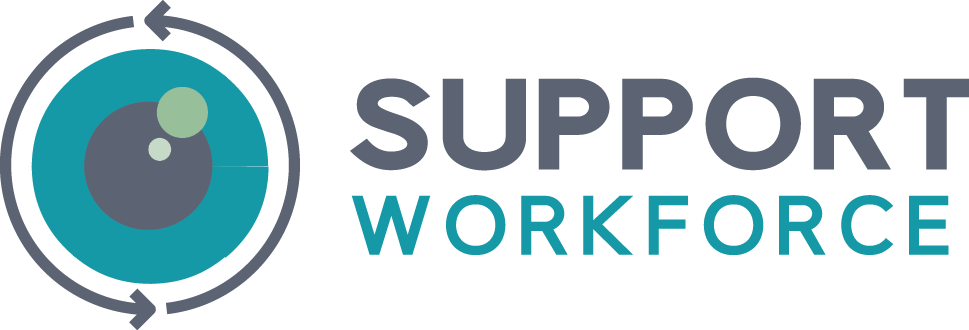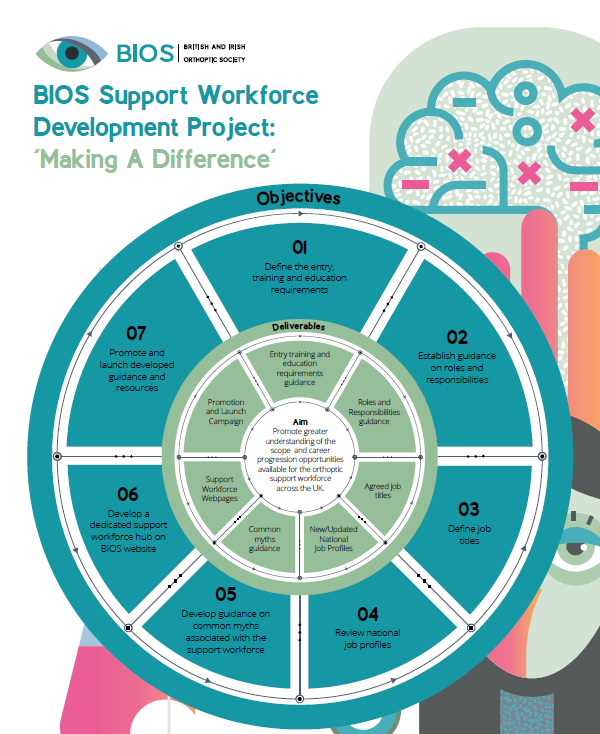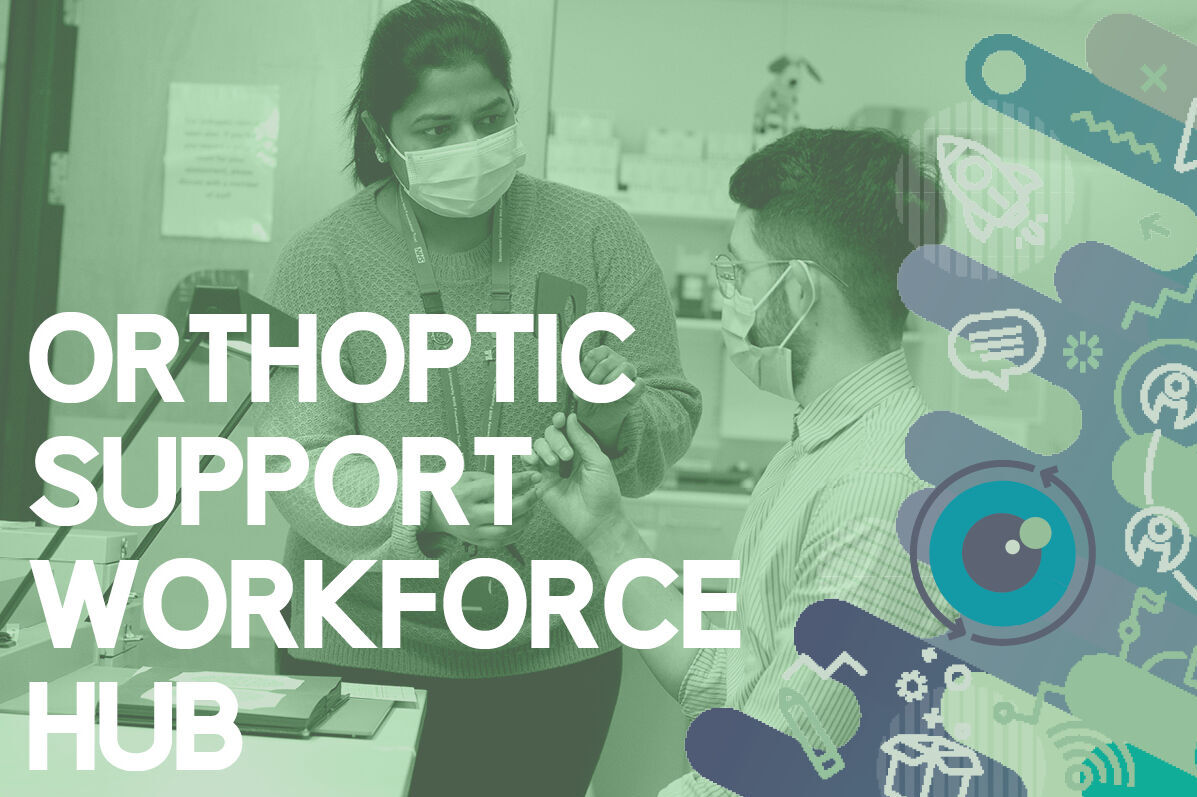Our vision is for all orthoptic staff wherever they work to feel valued, integrated into teams, able to work fully to their potential; with access to lifelong learning including relevant formal qualifications.
We wish employment in the clinical support workforce to be seen as a career that is valued and valuable. Moreover, whether staff wish to pursue their careers in the clinical support workforce or progress onto registered grades we want to ensure they have rewarding careers and are clear how they can develop, accessing the support they need.
The support workforce is an integral part of the orthoptic clinical team.
Read our full vision statement here.
The Project
This project looks to identify opportunities to support the development of the orthoptic support workforce across the UK and Ireland.
There are many terms used for the job roles for non-registered staff who are managed by orthoptists and who contribute so positively to patient care, patient pathways and treatment. Local job descriptions are developed to suit the needs of the local service and across the UK and ROI (except in Wales) there are no national competency frameworks or training packages specifically for this workforce. There are also no career framework or job profiles on NHS employers for our dedicated non registered workforce, unlike many other AHPs.
HEE recognised the gap in the offer to the non-registered orthoptic workforce and has provided some financial support to BIOS so the profession to explore this work further across the UK/ROI. There were four initiatives to the project:
- Online conference to celebrate and identify good practice and initiatives within the current non registered workforce
- A scoping exercise to identify what exists currently across the UK/ROI in terms of roles and responsibilities of the non registered workforce
- Collection and collation of local JDs to begin work with NHS employers and the JEG to develop national profiles for the non registered workforce for orthoptics
- Develop a national training and competency framework to standardise practice for the most common roles.
Scoping the Non Registered Workforce
The Developing the Orthoptic Non Registered Workforce conference was held online in November 2020. This was hugely successful, with a number of fascinating presentations from non registered orthoptic staff and their managers.
BIOS members can access a recording of the event in the members’ area here [login required]
Our national survey was emailed to all Head Orthoptists in the UK to further scope and understand more about the current support workforce including their roles, responsibilities, job titles, current use of competencies/standards, and possible development and/or educational opportunities.
The replies from this questionnaire supported the findings from the online event, which further demonstrated the wide variety in roles and competencies of the non-registered support workers (over 30 clinical, along with numerous non-clinical tasks), in addition to there currently being a significant variation in the job titles these staff hold (over 15 different titles).
The findings from this scoping work were published by HEE in November 2022. You can read the full report here.
Developing a Competency Framework
BIOS are now developing a competency framework relevant to our orthoptic support workers to help guide both staff and their line managers to ensure a clearer understanding of some specific roles that such staff can safely perform at various levels. This will provide clarity about how the support workforce can complement the wider workforce, in addition to providing some governance and structure by the use of such standards.
- There is currently a wider piece of work looking at developing a generic competency, education and career development framework for all Allied Health Professions’ support workers. BIOS are contributing this and it will inform the more specific orthoptic competencies and standards.
- We have also drawn on the competencies and standards and specific checklists developed within departments. If you have local competencies that you are willing to share, please contact us at the email below.
If you have any questions at all about this project, or have any competencies you would like to share, please contact Sue Elliott at [email protected]
Resources and Further Information
Health Education England (HEE):


